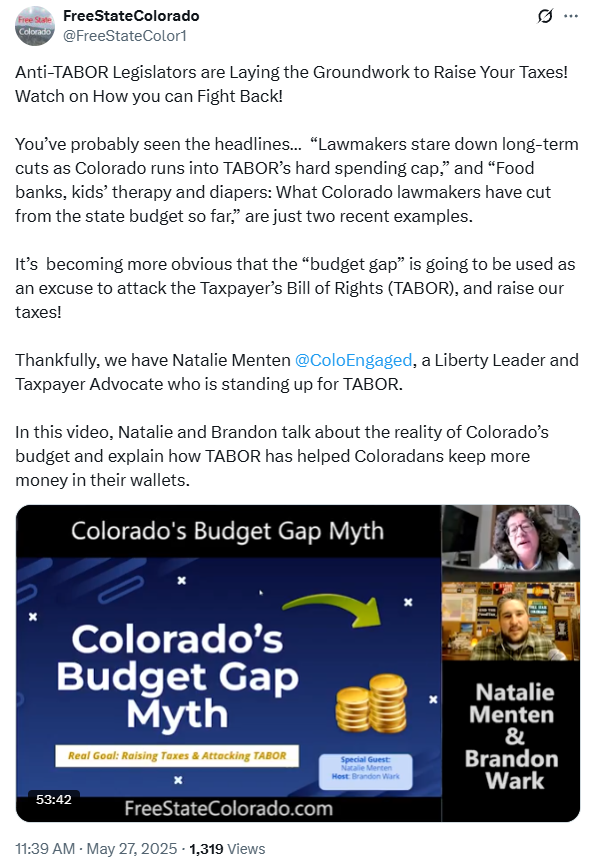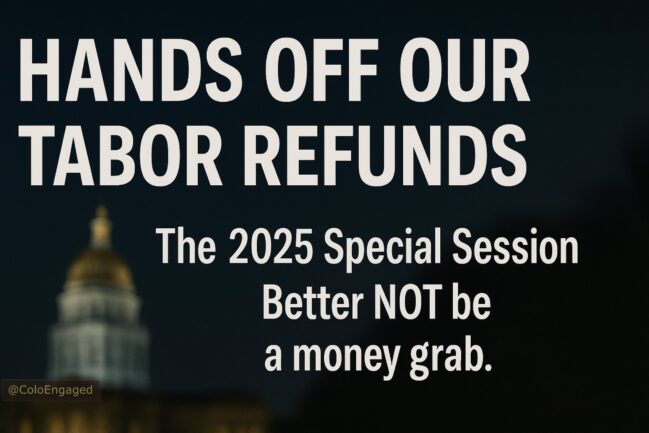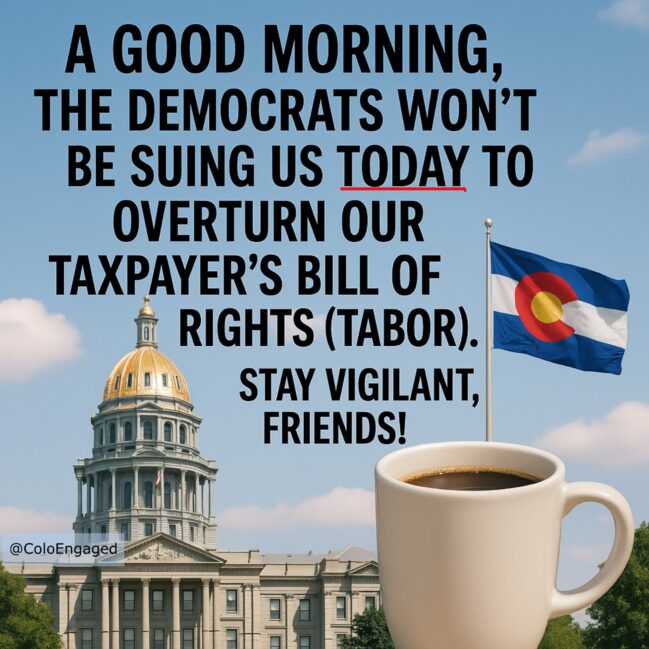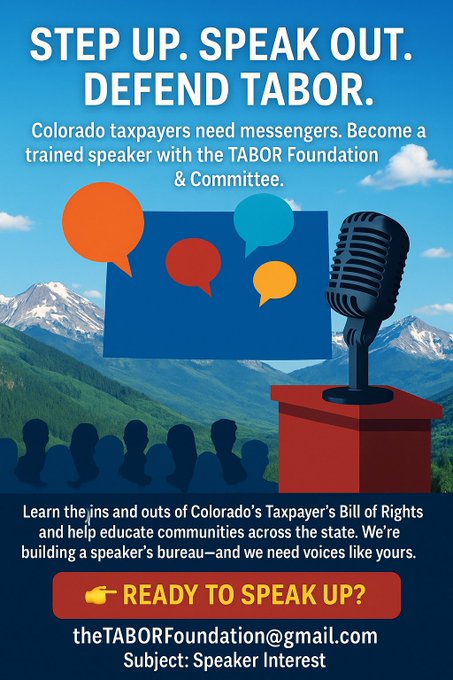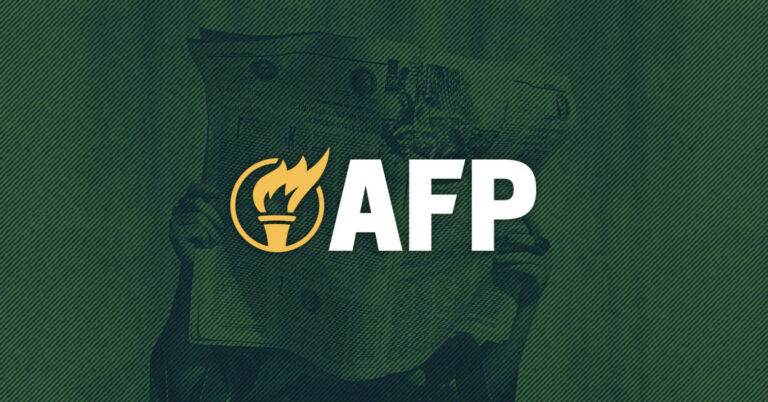
AFP-CO Launches TABOR Campaign Urging Coloradans to Contact Lawmakers
DENVER, CO — Today, Americans for Prosperity-Colorado (AFP-Colorado) announced the launch of a statewide campaign targeting lawmakers who voted to in favor of repealing Colorado’s Taxpayer’s Bill of Rights (TABOR). The campaign also highlights and thanks lawmakers who voted to protect taxpayers and the Taxpayer’s Bill of Rights by opposing House Joint Resolution (HJR) 25-1023.
TABOR has been saving Coloradans more of their hard-earned money for three decades by requiring voters to approve tax increases. More than 70% of Coloradans support TABOR, yet year after year, Democrat lawmakers in Denver dream up new ways to gut it.
To continue reading the rest of this TABOR story, click (HERE) to go to the AFP website.

